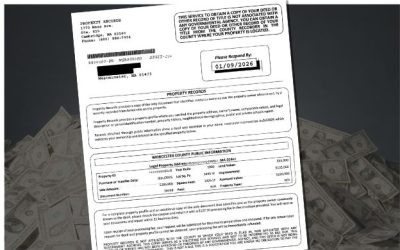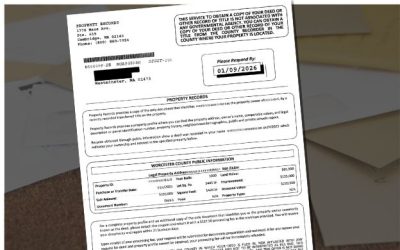
Aug 21, 2025 | Buying Real Estate, Consumer Tips, Credit Scoring, Home Building Tips, Home Buyer Tips, Home Buying Tips, Home Closings, Home Mortgage, Home Mortgage Tips, Home Seller Tips, Home Selling Tips, Home Tips, Home Values, Homebuyer Tips, Homeowner Tips
Once upon a time, the path to homeownership started in your late 20s. Today, the median age of a first-time buyer has climbed to 38 — the highest in U.S. history. In Massachusetts and New Hampshire, where prices remain high and incomes haven’t kept pace, first-time buyers make up only 24% of the market. This generational shift isn’t just a national trend — it’s reshaping local markets, too. Let’s explore why fewer young buyers are entering the game and what it means for buyers, sellers, and lenders alike.
The Shrinking First-Time Buyer Pool
In 2010, first-time buyers represented half the housing market. By 2024, that number dropped to less than a quarter. It’s not because younger generations don’t want to buy — surveys show they do — but the financial barriers are higher than ever.
For Massachusetts and New Hampshire buyers, the challenge is particularly acute. Both states rank among the nation’s most expensive housing markets, with limited inventory and bidding wars still common in desirable areas. That leaves many would-be buyers sidelined, even when mortgage rates dip slightly.
Why It’s Harder Than Ever
The income needed to buy a median-priced home has soared to over $126,000 a year, nearly 60% higher than in 2021. Meanwhile, household incomes in the region have barely budged. That mismatch has locked many younger buyers out of the market.
Millennials and Gen Z carry heavy financial baggage, from student loans to credit card balances. With Gen Z’s average personal debt topping $94,000, saving for a down payment feels more like a marathon than a sprint.
Entry-level homes — once the natural first step into ownership — are scarce. Many builders in New England focus on higher-margin luxury units, while affordable starter homes are either aging or quickly snapped up.
Younger generations are delaying marriage, children, and long-term settling, which historically drove first-home purchases. Add in higher rent burdens and inflation, and the dream of ownership is being pushed later into life.
What This Means for Sellers
If you’re selling in Massachusetts or New Hampshire, this trend could mean fewer young families competing for your property. That may soften demand in some price brackets, especially for entry-level homes. On the flip side, it also means that when younger buyers do show up, they’re highly motivated — and often well-prepared with family support, FHA financing, or cash gifts.
What This Means for Lenders
Lenders can’t assume yesterday’s products will work for today’s market. Winning over first-time buyers requires:
- FHA and low down payment options to lower the entry barrier
- Alternative credit scoring (including rental and utility history) to qualify more applicants
- Digital-first lending to meet younger buyers where they are
- Educational resources to guide cautious, debt-burdened buyers through the process
The lenders who succeed won’t just hand out mortgages — they’ll provide tools, trust, and guidance.
What This Means for Buyers
If you’re a first-time buyer in MA or NH, you’re not alone in feeling like the deck is stacked against you. But there are pathways forward:
- Explore FHA or MassHousing programs that reduce down payment hurdles
- Work with a closing attorney early to understand costs and risks
- Consider expanding your search beyond major metros into more affordable towns or suburbs
The shrinking pool of first-time buyers isn’t just a statistic — it’s a reality that shapes how homes are bought, sold, and financed in Massachusetts and New Hampshire. For buyers, it means persistence and planning. For sellers, it means understanding who your likely buyers really are. And for lenders, it means rethinking old playbooks to stay relevant.
At The Law Office of David R. Rocheford, Jr., P.C., we help buyers, sellers, and lenders adapt to today’s challenges and keep closings on track.
Ready to navigate the new landscape? Contact us today
Providing title, escrow, closing and settlement services to clients throughout Massachusetts and New Hampshire
“I would highly recommend David as a closing attorney. I have known David and have been using his office for many years. David’s professionalism when dealing with me, my closing department and most especially my clients has been always exemplary.”
SENIOR LOAN OFFICER, SHAMROCK FINANCIAL SERVICES
“The Law Office of Attorney David R. Rocheford, Jr. is by far the most exceptional real estate law office that I have had the pleasure of working with. The professionalism is by far second to none.”
SENIOR LOAN OFFICER, SALEM FIVE MORTGAGE SERVICES
“Attorney David Rocheford has provided settlement and title services for me and Greenpark Mortgage several years. He has assisted all of my clients, including my family and friends with mortgage closings. Always providing excellent service. Reliable and trustworthy!”

Jun 19, 2025 | Around The Home, Around The Hoome, Artificial intelligence, Buying Real Estate, Chapter 7 Bankruptcy, Consumer Tips, Credit Scoring, Fair Housing, Federal Reserve, FHFA, Financial Crisis, Financial Fraud, Financial Reports, Foreclosure, Happy Thanksgiving, Holidays, Home Building Tips, Home Buyer Tips, Home Buying Tips, Home Care, Home Care Tips, Home Closings, Home Decorating, Home Financing Tips, Home Maintenance, Home Mortgage, Home Mortgage Tips, Home Seller Tips, Home Selling Tips, Home Tips, Home Values, Homebuyer Tips, Homeowner Tips, Housing Analysis, Housing Market, Interesting Stuff, Investment Properties, Legislation, Market Outlook, Mortagage Tips, Mortgage, Mortgage Guidelines, Mortgage Lenders, Mortgage Rates, Mortgage Tips, mortgage-rates-whats-ahead-september-17-2012, News, Organization Tips, Personal Finance, Probate Law, Rankings, Real Estate, Real Estate Agent Information, Real Estate Definitions, Real Estate Tips, Real Estate Trends, Realtors, Selling Real Estate, Selling Your Home, Short Sales, Statistics, Success, Taxes, The Economy, Title Insurance
Whether you’re buying with cash, investing from abroad, transferring property to a family member, or just trying to close without a headache, you’ll want to know what can trigger federal scrutiny — and how to stay off the radar.
From flagged wire transfers and shell companies to gift-of-equity sales and land near military zones, this isn’t your average title-and-keys situation.
It’s real estate with a side of national security, tax enforcement, and financial crime prevention.
Is Big Brother Watching Your Home Sale?
What Buyers and Sellers Should Know About Federal Oversight
You’re Not Paranoid — They Might Actually Be Watching
What you didn’t know on how federal agencies keep tabs on select real estate transactions.
Your Closing Packet Could Be a Federal File
How Your Paper Trail Might Raise Red Flags — And What You Can Do About It
What the FBI, IRS, and Homeland Security
Could See in Your Closing Docs
We’re unpacking what agencies might spot inside your deal’s fine print.
Caught in the Crosshairs? What Triggers Federal Interest in Your Home Sale
The Top Red Flags That Could Invite a Closer Look from Washington
Cash, LLCs, or Land Near a Base? You Might Just Be a Target
The warning signs that put your deal on the government’s radar — and how to stay clear.
Follow the Money: How the IRS Tracks Financial Crimes Through Real Estate
From Unreported Income to Shell Game Schemes
— What IRS-CI Is Looking For
Your Closing Could Be an Audit Trigger — Here’s How the IRS Sees It
Explore the patterns, documents, and loopholes that turn ordinary deals into criminal cases.
Providing title, escrow, closing and settlement services to clients throughout Massachusetts and New Hampshire
“As a realtor, the Rocheford team went above and beyond to make sure my client was not only protected from a legal standpoint but also operated in a timely manner to execute the sale of my client’s dream home.
Thank you for the great experience for myself and my client! Looking forward to our next deal together!”
Realtor®
“I don’t usually use attorneys that often. But if an attorney is needed, I couldn’t recommend this law office enough. I always pride myself on responding quickly to emails and calls, but I was in awe of how fast paralegal Robert Heckman would respond to us. We sold our house a couple months ago and then did a two-part land swap with neighbors and my folks, and both transactions were seamless, including coming in to sign paperwork.
In short, if you need a law office that is responsive and attentive to detail, definitely consider them!”
Leominster, MA
“Excellent, conscientious and professional.
The communication throughout our Real Estate transaction was better than expected. We thought the fee to be very reasonable considering the work accomplished on our behalf. The law office handled the entire closing without us having to be in attendance….as we requested. I have had experience with very competent lawyers and law firms as the result of my previous profession. I would place this law office right up there among the best in their real estate field of expertise and surprisingly at very reasonable and affordable rates/fees.”
Buzzards Bay, MA
Nov 1, 2022 | Credit Scoring
 With the new year right around the corner, that leaves you with precious little time to get your finances in order. Let’s explore a few tips that will help you get a jump on improving your credit score before the end of the year.
With the new year right around the corner, that leaves you with precious little time to get your finances in order. Let’s explore a few tips that will help you get a jump on improving your credit score before the end of the year.
Grab A Fresh Copy
The first step is to order a fresh copy of your credit report from one of the major agencies. The Fair Credit Reporting Act allows you to access a free copy of your credit report once every 12 months. So, if you have not ordered a copy recently, it is time to do so. You can access this free service through AnnualCreditReport.com, which is a website recommended by the Federal Trade Commission.
Clean Up Anything Outstanding
Now that you have a copy of your credit report, it’s time to go through it, line-by-line. You should recognize every current and outstanding account in the report. Any balances owing should be in order and reflect how much you owe. It’s critical that you flag any mistakes or old debts that you have already paid in full. If you come across anything that shouldn’t be on your credit report, call the reporting agency to let them know. If necessary, they will assist you with challenging the issue.
Pay Down Those High-Interest Debts
The final tip is to prioritize your outstanding debts so that you can pay them off more efficiently. The essential debt payments are your mandatory minimums, which you need to pay to avoid being sent to a collection agency. From there, try to pay off your debts with the highest interest rates first. Getting these paid off faster means that over time, you’re spending less on interest payments. Moreover, you can use that extra cash to pay your debts down further.
The above are just a few of the action steps that you can take today to start improving your credit score. When you’re ready to discuss a mortgage for your new home, give our team a call. We will be happy to advise you on the mortgage offer that suits your needs, budget, and credit.
Sep 8, 2021 | Credit Scoring
 Due to recent changes in federal regulations, consumers are now allowed to freeze their credit free of charge. Prior to changes in these regulations, credit bureaus would charge consumers for freezing their credit. What does this mean, and why might someone want to do this?
Due to recent changes in federal regulations, consumers are now allowed to freeze their credit free of charge. Prior to changes in these regulations, credit bureaus would charge consumers for freezing their credit. What does this mean, and why might someone want to do this?
Freezing Credit Restricts Access To Confidential Information
There are certain situations where consumers may need to have access to their credit reports. For example, they may be applying for a home loan or a car loan. There are other situations where consumers may not need access to their credit reports for an extended amount of time. In this case, it is possible to freeze the credit report to restrict all access. This makes it harder for hackers to access confidential credit information, preventing them from opening an account in someone else’s name.
Who Can Freeze Their Credit Reports?
All consumers have the ability to freeze their credit reports. Even some children may have a credit history, so it is possible for parents to freeze the profile of a child for a certain amount of time. This prevents hackers from stealing credit information regarding children as well.
How Can Consumers Freeze Their Credit Reports?
It is relatively easy to conduct a credit freeze at any of the three major credit bureaus including Equifax, Experian, and Trans Union. All consumers need to do is request a credit freeze via a phone call, letter, or an online request. The bureau has to comply, freezing someone’s credit report within one business day. Furthermore, consumers should be able to access free fraud alert services as well. That way, individuals will automatically be alerted if someone tries to open an account in their name.
What Happens When Applying For A Loan?
If applying for a loan, consumers need to unfreeze their credit reports. Therefore, they should file a request with all three major credit bureaus. They will have to comply within one hour. Then, after the lender has the information he or she requires, consumers can simply request a credit freeze again. That way, they limit the opportunities of hackers who might be trying to steal confidential information and commit identity theft.
Jan 16, 2013 | Credit Scoring
 For home buyers in Massachusetts and nationwide, credit scores can change low mortgage rates and alter home loan approvals.
For home buyers in Massachusetts and nationwide, credit scores can change low mortgage rates and alter home loan approvals.
Borrowers with high credit scores get access to lower mortgage rates, for example, and can find the mortgage approval process to be more smooth that borrowers with low credit scores.
If your credit score is low, here are some basic ways to help improve it.
Get The Reports
Download an updated version of your credit report from each of the three major reporting bureaus — Equifax, Experian and TransUnion. The reports may mirror each other, but credit accounts — especially derogatory ones — sometimes don’t appear on all three. Ordering reports from all three bureaus is a safety step. Note that the credit bureaus each use different scoring models so your credit scores will vary.
Check For Errors
Yes, credit reports can have errors in them. Should you find any items on any of the three credit reports which, in your opinion, do not belong or are erroneous, contact the credit bureau regarding removal. Errors on a credit report must be addressed with each bureau individually.
Pay Up
Or, rather, pay down. Be diligent about paying down your credit card balances in order to lower the percentage of your credit line(s) in use. In general, aim for a 30% ratio or less. An added benefit of paying down debt is that it can lower your total monthly debt load, which can increase your maximum home purchase price.
For items which are harming your score, such as a 30-day or 60-day mortgage late payments, medical collection items, and/or judgments, consider writing a brief letter which explains the circumstance of the derogatory credit event. Such a letter won’t help your score to improve, but it can help your lender to make better credit decisions, which can aid in “exceptions”, if required.
Making even minor changes to an overall credit profile can yield measurable long-term results. It can also result in lower mortgage rates.















 With the new year right around the corner, that leaves you with precious little time to get your finances in order. Let’s explore a few tips that will help you get a jump on improving your credit score before the end of the year.
With the new year right around the corner, that leaves you with precious little time to get your finances in order. Let’s explore a few tips that will help you get a jump on improving your credit score before the end of the year. Due to recent changes in federal regulations, consumers are now allowed to freeze their credit free of charge. Prior to changes in these regulations, credit bureaus would charge consumers for freezing their credit. What does this mean, and why might someone want to do this?
Due to recent changes in federal regulations, consumers are now allowed to freeze their credit free of charge. Prior to changes in these regulations, credit bureaus would charge consumers for freezing their credit. What does this mean, and why might someone want to do this? For home buyers in Massachusetts and nationwide, credit scores can change low mortgage rates and alter home loan approvals.
For home buyers in Massachusetts and nationwide, credit scores can change low mortgage rates and alter home loan approvals.